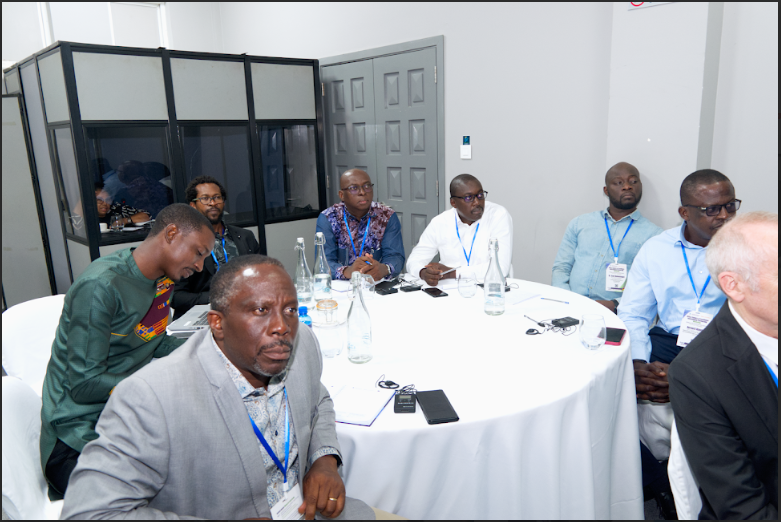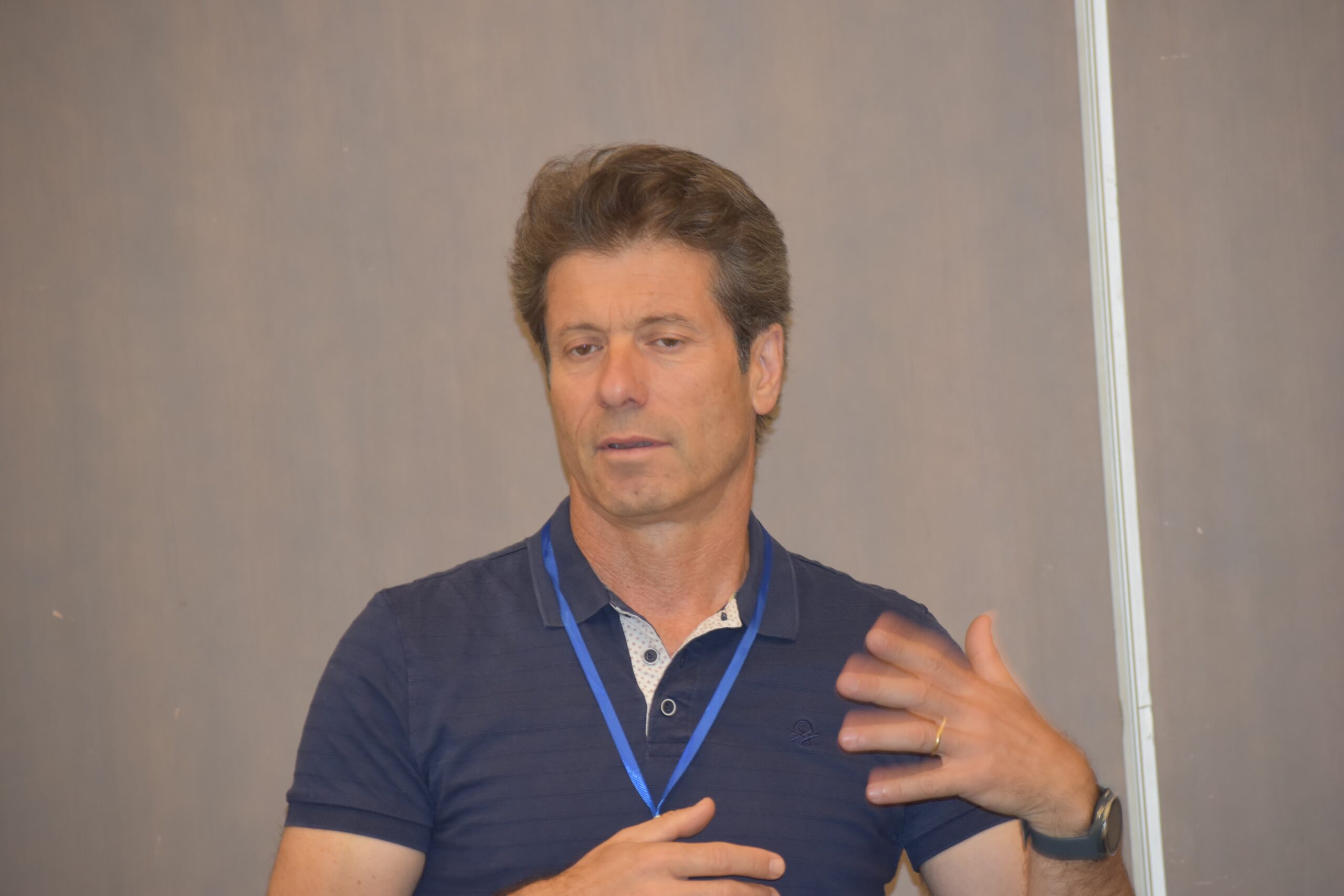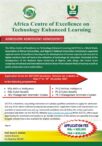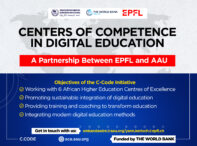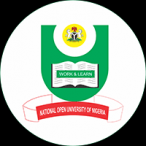ACE International Partnership Workshop: Experts Brainstorm Innovative Solutions to Africa’s Water and Agriculture Challenges
In May 2024, the Africa Centres of Excellence (ACE) program held its inaugural international partnership workshop. Over 400 higher-education stakeholders, researchers, and innovators from over 20 countries convened in Mauritius to foster partnerships and chart a sustainable path to Africa’s development, through the ACE program’s contribution. Several sessions were organized according to the ACE initiative’s thematic areas to ensure a well-coordinated workshop and fruitful deliberations. Session III featured a panel discussion focused on the research and innovations being conducted by the Centres of Excellence in the thematic areas of Water and Agriculture. Moderated by Dr Uchechi Obinna, a researcher at the Centre of Expertise Water Technology (CEW), Leeuwarden in The Netherlands, the session aimed to foster an engaging and dynamic discussion on current research, innovation, and partnerships, particularly among the African Centres of Excellence and the European Centres of Excellence in the water and agriculture sectors.
The esteemed panel of speakers included Prof. Harouna Karambari, Coordinator of the Centre of Excellence for Training and Research in Water Sciences and Technologies, CEA 2iE, Burkina Faso; Prof. Eric Danquah, Director of the West Africa Centre for Crop Improvement (WACCI), Ghana; Dr Hans Komakech from the Water Infrastructure and Sustainable Energy Centre for the Futures (WISE FUTURES), Tanzania; and Dr Sera Gondwe from the Centre of Excellence in Transformative Agriculture Commercialisation and Entrepreneurship (TACE), Malawi. The other panelists were Messrs Pieter De Jong from the Wetsus European Centres of Excellence for Sustainable Water Technology, The Netherlands; Olof Blomqvist from the Climate Knowledge and Innovation Community (KIC), Lund University, Sweden; and Matija Zulj, Founder and CEO of the Digital Agriculture Solutions for Agri-Food Value Chain (AGRIVI), a specialized AgTech company that delivers farm management softwares.
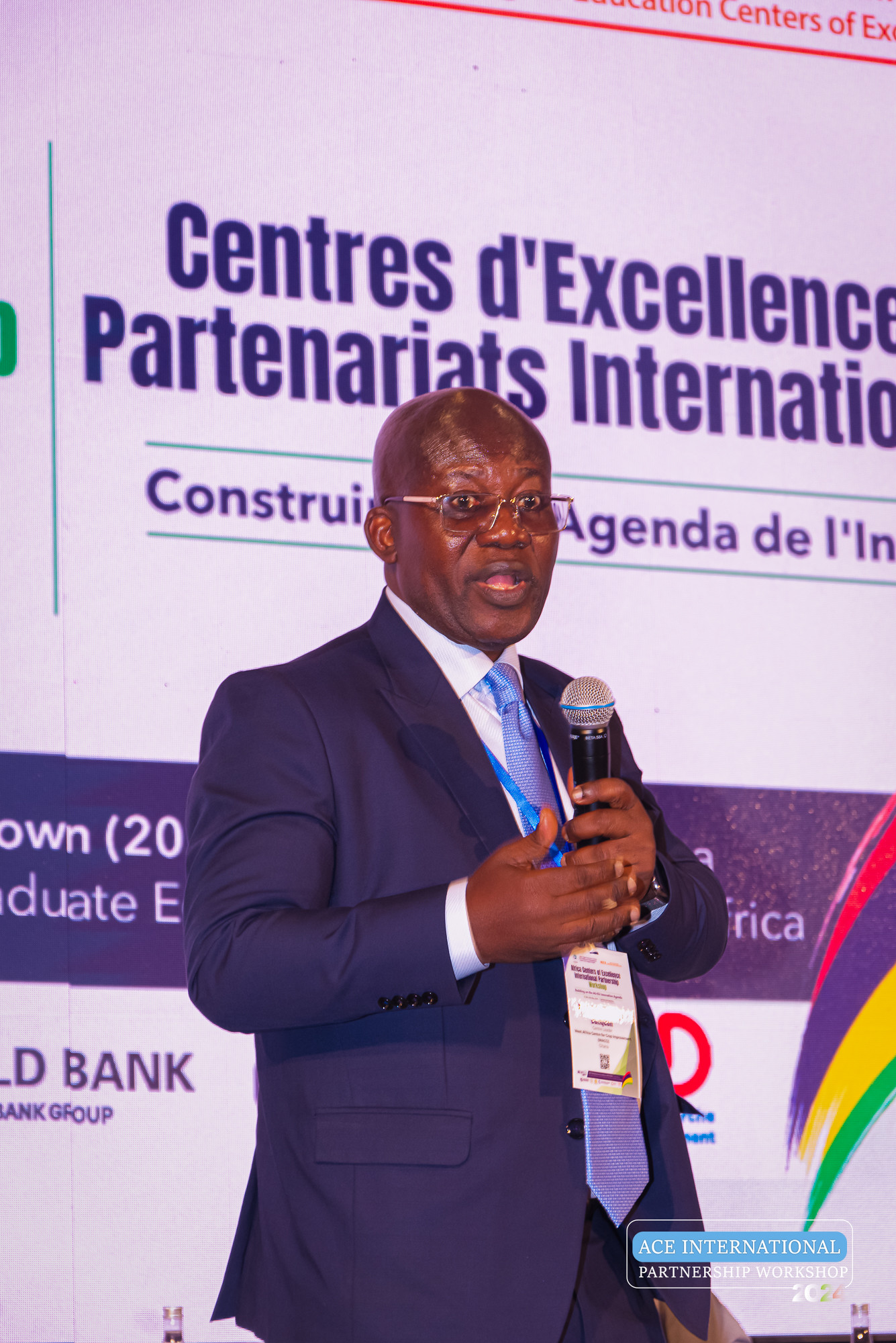
The session commenced with a discussion on agriculture and water innovations and emphasised the significance of these areas for development in Africa and globally.
Speakers from the various participating Centres of Excellence demonstrated strong performances across key performance indicators (KPIs) in these thematic areas. They discussed various topics such as water treatment, digital education, agricultural innovation, and research and their associated challenges, raising concerns about issues related to water, agriculture, and contamination, particularly in regions known for e-waste contamination like Nigeria and Ghana and emphasising the need to explore areas of potential collaborations in addressing these safety and pollution issues. They also discussed the impact of agricultural programmes in West Africa, including specific examples of successful initiatives, partnerships, and future goals, and outlined clear next steps, which emphasised the importance of collaboration, innovation, commercialization, and strategic management in dealing with the related challenges.
Challenges and Interventions
The panellists highlighted some of Africa’s development challenges. They identified malnutrition, low food production, and hunger as some of the numerous challenges in Africa, revealing that one out of every five Africans suffers from chronic hunger. They also mentioned the impact of climate change, loss of soil fertility, and the barriers to technology adoption in agriculture, especially the cost of technology.
In tackling Africa’s numerous challenges, especially the issues of malnutrition, low food production, and chronic hunger, the speakers of this all-important session acknowledged the significant contributions of various interventions, such as the establishment of the West Africa Centre for Crop Improvement (WACCI) in Ghana, the Regional Centre of Excellence on Avian Sciences (CERSA) in Togo, and other Centres of Excellence in other countries like Cote d’Ivoire, Malawi, Nigeria, Niger, and Senegal.
The speakers also unanimously emphasised the importance of international partnerships and collaborative research for the centres of excellence to consolidate their contributions and achieve sustainable impact. In terms of these international partnerships and research impact, reference was made to, and lessons drawn from, the success stories of the establishment of Wetsus European Centres of Excellence for Sustainable Water Technology and their international collaborations with countries like Kenya and South Africa and partnerships with development organisations like the World Bank Group.
In his presentation, Wetsus’s Pieter De Jong emphasised the importance of collaborations and partnerships, especially to overcome the barriers to technology adoption in agriculture. He expressed his Centre’s continual commitment to ensuring effective water treatment, enhancing digital education, and supporting appropriate tailor-made technology solutions. To this end, Pieter revealed Wetsus’s imminent plan to launch the World’s first water MBA programme and a special Water-For-All Programme, aimed at enrolling students in solution-oriented programmes in Europe.
He also outlined the organisation’s plan to work on implementing carbon filters, testing water filters, developing standards, and establishing digital education centres in collaboration with partners to provide safe water and enhance learning opportunities.
On agricultural innovation and partnerships, Wetsus aims to commercialise crop varieties, support entrepreneurship activities, and leverage regional and international partnerships to enhance agricultural innovation and agribusiness ventures.
Proposed Solutions and Key Next Steps
For impactful research and innovation in the water and agriculture sectors, the panellists proposed engaging in dialogue and generating ideas in tackling current challenges and fostering future collaborations and partnerships between Africa and Europe. They also emphasized optimism that such collaborations and partnerships between the two continents will occur despite possible financial challenges.
The panellists outlined some collaboration strategies in research projects, emphasising the need to coordinate research projects and prioritize infrastructure investments to create impact and optimise water systems for better efficiency. They also agreed on the importance of selecting a few strategic research partners and industry collaborators for effective collaborations, emphasising quality over quantity.
To ensure efficient private-public partnerships and innovation collaboration, participants expressed the need to seek guidance from institutions with experience in forming partnerships to avoid common mistakes and accelerate the commercialisation of innovations.
In terms of commercialisation of research findings, the speakers discussed the approach of translating research findings into practical applications, identifying innovations, supporting innovations, protecting IPs, and collaborating with partners for commercialisation. The next steps also involved assessing the readiness levels of innovators, supporting them, and moving towards specialisation. The speakers highlighted the importance of partnering with internal and external institutions, focusing on common goals, leveraging partnerships, and identifying value within partners to drive commercialisation.
The session was a testament to global collaboration for innovative water and agriculture solutions, covering discussions on agriculture and water innovations, and emphasising their significance for development not only in Africa but globally. Panellists shared great insights on the importance of focusing on innovations in these areas, underscoring the shared commitment to addressing the associated global challenges. Clearly there are immense opportunities for ACEs to collaborate and partner among themselves and also with institutions in Europe and elsewhere.
